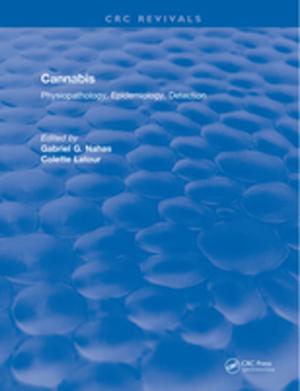Testing Tribocorrosion of Passivating Materials Supporting Research and Industrial Innovation
A Handbook
Nonfiction, Science & Nature, Technology, Material Science| Author: | Jean-Pierre Celis | ISBN: | 9781351546935 |
| Publisher: | CRC Press | Publication: | July 5, 2017 |
| Imprint: | Routledge | Language: | English |
| Author: | Jean-Pierre Celis |
| ISBN: | 9781351546935 |
| Publisher: | CRC Press |
| Publication: | July 5, 2017 |
| Imprint: | Routledge |
| Language: | English |
This first edition of Testing Tribocorrosion of Passivating Materials Supporting Research and Industrial Innovation: A Handbook treats in a clear, concise, and practical manner an important material degradation and protection matter. It is designed as a handbook and provides a well structured approach of the basics needed to investigate the tribocorrosion behavior of passivating materials, and to conduct in a correct way a laboratory investigation on it. It provides answers on practical and theoretical approaches of tribocorrosion phenomena to engineers and medical persons involved with material assemblies subjected to aggressive environmental and mechanical conditions. For academic researchers it is a pertinent tool assisting them in how they can perform a tribocorrosion investigation and obtain results that are correctly interpreted and can be exchanged. Different parts of the book are illustrated with practical examples. This handbook is truly an indispensable guide for every professional who comes into contact with the complex material degradation and protection processes that take place under combined corrosion and wear conditions. Fields of interest include: transportation (aeronautics, maritime, rail, automotive), medical implants (orthopaedics, dentistry), biochemistry, food production, energy production, and machining. The coordination of this handbook writing was done by Professor Jean-Pierre Celis (Katholieke Universiteit Leuven, Belgium) and Professor Pierre Ponthiaux (Ecole Centrale Paris, France) assisted by twelve European experts who contributed jointly to the nine chapters of this handbook. Main topics dealt with are tribocorrosion phenomena in medical and industrial sectors, depassivation and repassivation phenomena, impact on synergism in tribocorrosion, specific testing techniques, coupling tribology-to-corrosion, design of a testing protocol, and normalisation.
This first edition of Testing Tribocorrosion of Passivating Materials Supporting Research and Industrial Innovation: A Handbook treats in a clear, concise, and practical manner an important material degradation and protection matter. It is designed as a handbook and provides a well structured approach of the basics needed to investigate the tribocorrosion behavior of passivating materials, and to conduct in a correct way a laboratory investigation on it. It provides answers on practical and theoretical approaches of tribocorrosion phenomena to engineers and medical persons involved with material assemblies subjected to aggressive environmental and mechanical conditions. For academic researchers it is a pertinent tool assisting them in how they can perform a tribocorrosion investigation and obtain results that are correctly interpreted and can be exchanged. Different parts of the book are illustrated with practical examples. This handbook is truly an indispensable guide for every professional who comes into contact with the complex material degradation and protection processes that take place under combined corrosion and wear conditions. Fields of interest include: transportation (aeronautics, maritime, rail, automotive), medical implants (orthopaedics, dentistry), biochemistry, food production, energy production, and machining. The coordination of this handbook writing was done by Professor Jean-Pierre Celis (Katholieke Universiteit Leuven, Belgium) and Professor Pierre Ponthiaux (Ecole Centrale Paris, France) assisted by twelve European experts who contributed jointly to the nine chapters of this handbook. Main topics dealt with are tribocorrosion phenomena in medical and industrial sectors, depassivation and repassivation phenomena, impact on synergism in tribocorrosion, specific testing techniques, coupling tribology-to-corrosion, design of a testing protocol, and normalisation.















